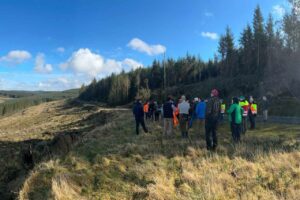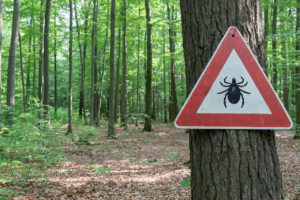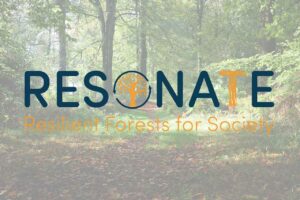Trees, People, and the Built Environment II: pre-conference article
Kathleen L. Wolf, Ph.D., Research Social Scientist; College of the Environment, University of Washington (Seattle, U.S.A.)

Insightful people have long noted not only the beauty of trees, but also the thoughts, emotions, and inspirations that emerge when one encounters large trees. Newton was but one of many!
Appreciation of city tree beauty and aesthetics is widely shared. Are there other benefits and values that people and communities hold for city trees and the urban forest? More than 40 years of research reveals a wide range of positive responses. Summaries of this evidence can be found at the Green Cities:Good Health website.
Economists have weighed in as well. We can readily measure the value of commodities and products derived from natural systems, such as lumber, food crops, and animal products. In recent years economists have developed methods to measure nature-based non-market goods and services, such as visual quality, stormwater management, and carbon treatment. In addition, trees influence the everyday lives of people in positive ways, with economic consequences.
Private Property Values
Hedonic pricing method is a way to extract the proportion of nature-based value in recent sales or assessments. Based on comparable properties having similar characteristics, the element of value associated with variability in landscape and trees canopy can be statistically estimated. Studies have found that nearby trees, particularly large ones, can boost the price of a home from 2% to 15%. Local governments capture those price effects in sales or property taxes across neighbourhood, providing the revenue needed to manage trees so they remain healthy and vital for decades.
Shopper Response in Business Districts
Many merchants in central business districts strive to provide a favourable shopping experience for their visitors. A well-cared-for tree canopy extends that customer service from the front door to the curb, and with good return for the effort. In multiple studies having a mature urban forest within business districts and commercial areas promotes positive shopper perceptions and behaviour, providing bottom-line benefits. Consumers claim that they will travel greater distances and for longer amounts of time to visit a forested district, thus expanding the catchment area for visitors. Once in the district people claim that they are willing-to-pay from 9% to 12% more for equivalent goods and services in shopping districts that have a mature, high quality tree canopy.
Nature for Health and Healing
The last, and perhaps most substantial source of community economics value is from evidence concerning nature response and public health. Trees are vital elements in parks, gardens, and urban green spaces. Nearby nature affects mental wellness, reducing depression and stress. ‘Forest bathing’ is linked to better immune function and reduced diabetes symptoms. Having widespread nature systems in cities provides the spaces for active living, and less overweight people are less likely to experience chronic health issues such as heart and respiratory diseases. Translation of this benefits evidence to economic valuation is underway. This aspect of public economics is likely to reveal very large valuations based on avoided costs of more healthful lives and reduced health care needs.
The issue of value is central to local budgets and community investment. Having large, well-maintained trees adds value to the local economy. Trees contribute to quality of life in communities, and to the bottom line.
Sources:
Wolf, K.L. August 2007. City Trees and Property Values. Arborist News 16, 4: 34-36.
Wolf, K.L. in press. City Trees and Consumer Response in Retail Business Districts. In: F. Musso & E. Druica (eds.) Handbook of Research on Retailer-Consumer Relationship Development. Hershey, PA: IGI Global.
Wolf, K.L. & A. Robbins. submitted for review. Urban Green Spaces, Human Health and Wellbeing, and Economic Values. Environmental Health Perspectives.
Dr Kathleen Wolf will speak at Trees, People and the Built Environment II, University of Birmingham, 2-3 April. Book now >>






